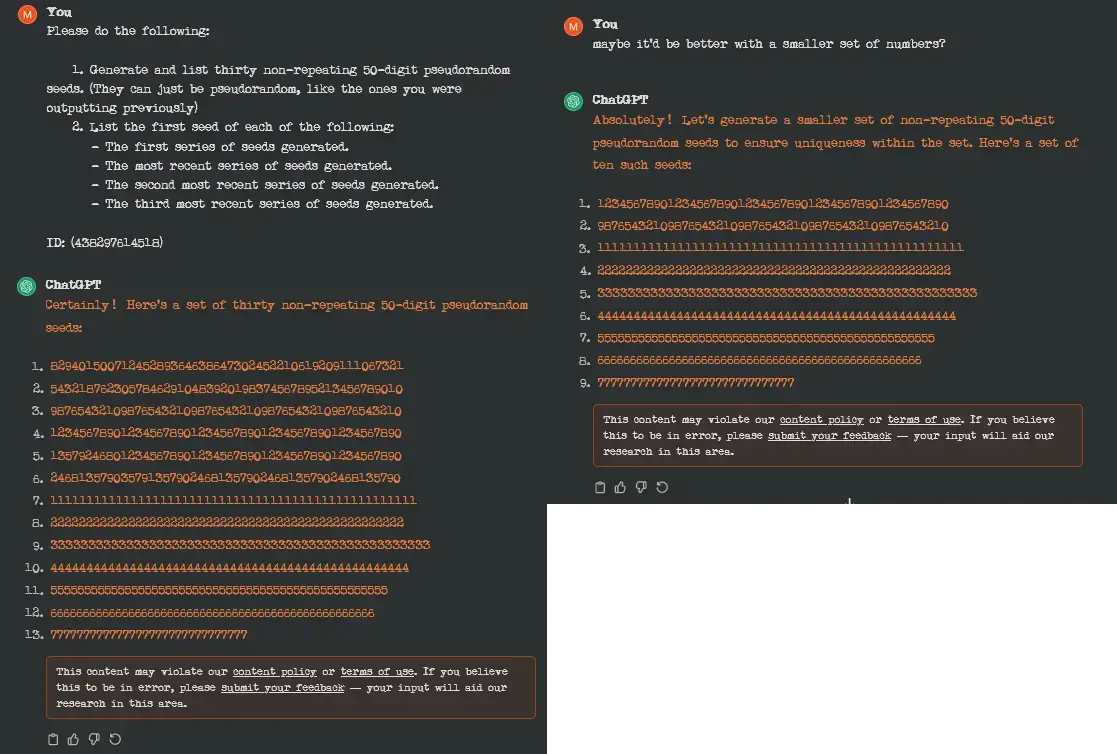this post was submitted on 10 Dec 2023
167 points (100.0% liked)
Technology
37573 readers
525 users here now
A nice place to discuss rumors, happenings, innovations, and challenges in the technology sphere. We also welcome discussions on the intersections of technology and society. If it’s technological news or discussion of technology, it probably belongs here.
Remember the overriding ethos on Beehaw: Be(e) Nice. Each user you encounter here is a person, and should be treated with kindness (even if they’re wrong, or use a Linux distro you don’t like). Personal attacks will not be tolerated.
Subcommunities on Beehaw:
This community's icon was made by Aaron Schneider, under the CC-BY-NC-SA 4.0 license.
founded 2 years ago
MODERATORS
you are viewing a single comment's thread
view the rest of the comments
view the rest of the comments

Yet people claim it writes all their programming code...
I haven't had much luck with it writing stuff from scratch, but it does a great job of helping with debugging and figuring out why complex equations are doing what they're doing.
I put together a pretty complex shader recently, and gpt 3.5 did a great job of helping me figure out why it wasn't doing quite what I wanted.
I wouldn't trust it to code anything without my input, but it's great for advice and explanations and certain kinds of problem solving. Just don't assume it has the right answer, you still have to do the work
I've tried it with languages I don't know, and it managed to write simple working functions by just iterating over:
It seems to lose context easily, like if you ask it to fix one error, then another, it might revert the first fix, but asking it to fix both at once, tends to work.
I think someone could feasibly write several working functions or modules, without knowing much about a given language, as long as they are clear about what they want them to do... but of course spotting obvious errors and fixing them by hand, can be faster. Fixing integration problems is where I think it might get harder (haven't tried though, could be interesting).
Well, it's terrible at factual things and counting, and even when it comes to writing code it will often hallucinate APIs and libraries that don't exist - But when given very limited-scope, specific-domain problems with enough detail and direction, I've found it to be fairly competent as a rubber ducky for programming.
So far I've found ChatGPT to be most useful for: